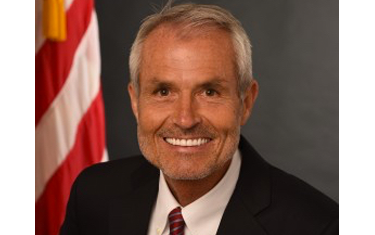
Jerry Milner, associate commissioner of the Children’s Bureau at the Department of Health and Human Services
Jerry Milner, the associate commissioner of the Children’s Bureau at the Department of Health and Human Services, recently recalled his initial excitement with federal child welfare finance reform back in the 1980s. The Adoption Assistance and Child Welfare Act had just become law, establishing the Title IV-E entitlement that has since driven federal funds to foster care placements and adoption efforts.
There were two really critical pieces of that law other than the money, Milner told a crowd at the Brookings Institution, which was held in January and posted online this week. One was the requirement that every child have a case plan; the other was a requirement that reasonable efforts be made to prevent a removal to foster care.
He lamented that both provisions, in his opinion, had been reduced to red tape. “Those are perfunctory functions more times than not right now,” Milner said. “It often boils down to a checked box on a court order, and does not involve substantive decision making.”
And, he feared, the same fate could befall key aspects of the newly passed Family First Prevention Services Act, which takes effect in 2019.
The Family First Act was passed last year, combines two major shifts in federal policy when it comes to the IV-E entitlement. On the front end, it offers federal reimbursement for funds to support evidence-based substance abuse, mental health and parenting services aimed at preventing the use of foster care in some maltreatment cases. It also provides a federal match for evidence-based kinship navigators, programs that help relative caregivers.
On the deep end of the child welfare system, the new law cuts off federal funds after two weeks for placing kids in group homes and other congregate care environments. There are a few exceptions to that rule, including the use of qualified residential treatment programs (QRTP), accredited providers that use a clinical model and guarantee family-involved after-care services.
Even in the case of a QRTP, a judge must periodically approve continuing congregate care placements. In order for a youth to remain in group care longer than 12 months, the actual director of the state child welfare agency would have to sign off on it.
Milner said key components of the Family First Prevention Services Act could end up the same way if the child welfare field does not commit to greater investments in primary prevention of child maltreatment. His suggestion seemed to be that great policy goes the way of rubber-stamping when the total number of decisions to make overwhelms the decision makers.
“The last thing I want to see happen to Family First is – after working so hard all these years to see this kind of a focus on reducing congregate care and moving in the direction of a prevention-based system – is one more federal law that basically becomes an exercise in technical compliance,” Milner told the audience. “I do not want courts and judges to get to the point where they see their function in determining whether congregate care is appropriate for a child or not to simply be, ‘Where do I check the box?’”
The key to avoiding a bureaucratic fate for Family First will be a better vision for “how we want to serve children and families” that is done “with the voices of the children and parents who have lived experience in the system.”
Milner has been vocal about the fact while he sees Family First as an important first step in the right direction, its front-end resources are built around a framework where families are already at some level of crisis. That does not bring federal resources to bear for true upstream work aimed at helping parents before abuse or neglect have ever occurred.
“We all get upset when kids get hurt, and they die, and we should,” Milner told the Brookings crowd. “But we should be equally excited, and motivated, when we see our efforts to prevent those kinds of things from happening come to fruition.”
_________________________________________________________________________________________
WEBINAR ALERT!
TOMORROW: Learn more about the federal rule change to provide legal representation to children and parents involved in the child welfare system in our exclusive webinar, A New Era of Funding Family Justice, with Leslie Heimov and Vivek Sankaran on Feb. 21st. Hosted by John Kelly, Editor-in-Chief for The Imprint.







